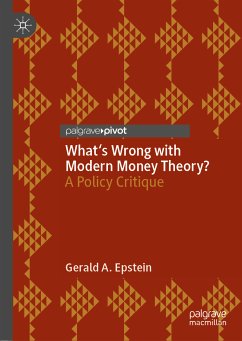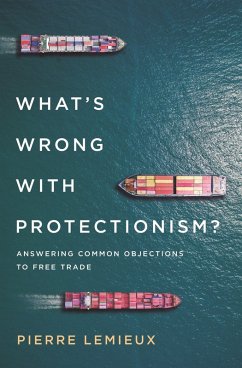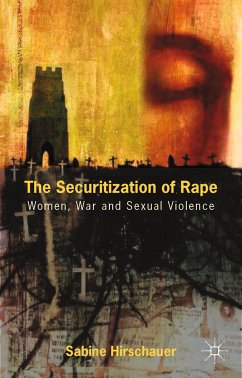
What's Wrong With Terrorism? (eBook, PDF)

PAYBACK Punkte
0 °P sammeln!
Terrorists perform terrible acts. They maim, mutilate and kill in pursuit of their goals. The horrifying events of 9/11 and the regular suicide bombings around the world have made terrorism one of the central preoccupations of the twenty-first century. But what is the distinctive wrong of terrorism? Criminal acts such as murder and hijacking are already on the moral statute books, so why is it that we regard terrorists as different from and morally worse than ordinary killers and kidnappers?Some see terrorism is an ideology, others claim it is a deep-seated social or psychological failing, oth...
Terrorists perform terrible acts. They maim, mutilate and kill in pursuit of their goals. The horrifying events of 9/11 and the regular suicide bombings around the world have made terrorism one of the central preoccupations of the twenty-first century. But what is the distinctive wrong of terrorism? Criminal acts such as murder and hijacking are already on the moral statute books, so why is it that we regard terrorists as different from and morally worse than ordinary killers and kidnappers?
Some see terrorism is an ideology, others claim it is a deep-seated social or psychological failing, others that it is a form of fighting unfairly judged by just-war standards. In this provocative new book, Robert Goodin puts forward the view that terrorism is, in fact, a deliberate tactic of frightening people for socio-political gain. Fear affects peoples ability to reason clearly and undermines their capacity for autonomous self-government.
In this way, Goodin contends that terror is not only the weapon of organizations such as al-Qaeda; it also benefits democratic politicians who profit from the climate of insecurity induced by terrorist threats and violence. Political figures conducting a campaign of fear as part of their war on terrorism may therefore be committing wrongs akin to those of terrorists themselves. This, Goodin argues, is what is distinctively wrong with terrorism in the contemporary world.
Some see terrorism is an ideology, others claim it is a deep-seated social or psychological failing, others that it is a form of fighting unfairly judged by just-war standards. In this provocative new book, Robert Goodin puts forward the view that terrorism is, in fact, a deliberate tactic of frightening people for socio-political gain. Fear affects peoples ability to reason clearly and undermines their capacity for autonomous self-government.
In this way, Goodin contends that terror is not only the weapon of organizations such as al-Qaeda; it also benefits democratic politicians who profit from the climate of insecurity induced by terrorist threats and violence. Political figures conducting a campaign of fear as part of their war on terrorism may therefore be committing wrongs akin to those of terrorists themselves. This, Goodin argues, is what is distinctively wrong with terrorism in the contemporary world.
Dieser Download kann aus rechtlichen Gründen nur mit Rechnungsadresse in D ausgeliefert werden.












